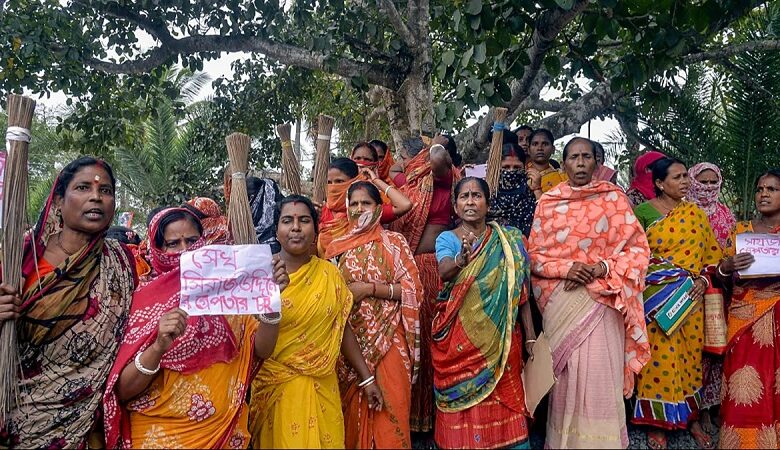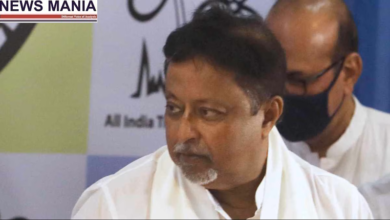Supreme Court’s Scrutiny of West Bengal’s Role in Sandeshkhali Case: A Legal Analysis
The Supreme Court on Monday reprimanded the West Bengal government for opposing the CBI investigation into the Sandeshkhali issue and questioned how a state government can approach the top court to protect the interests of an individual.

The Supreme Court recently raised questions regarding the West Bengal government’s involvement as a petitioner in the Sandeshkhali case, expressing skepticism over its purported role in protecting the interests of private individuals. This observation was made during the court’s hearing of the state government’s plea challenging the Calcutta High Court’s order directing a CBI investigation into allegations of crimes against women and land grabbing in Sandeshkhali.
The bench comprising Justices B R Gavai and Sandeep Mehta questioned the rationale behind the state government’s intervention on behalf of private individuals, highlighting the unusual nature of such involvement. The counsel representing the state government cited grievances regarding certain remarks made in the high court’s order, contending that they were unfair given the government’s proactive measures in addressing the situation.
Senior advocate Abhishek Singhvi, representing the state, requested a postponement of the hearing to allow time for the submission of crucial information. The bench acceded to this request, rescheduling the matter for July.
In its plea before the Supreme Court, the state government argued that the high court’s order had undermined the efficacy of the state machinery, particularly the police force. It criticized the broad directives issued by the high court, which allegedly encroached upon the jurisdiction of the state police to investigate cognizable offenses in the Sandeshkhali area, irrespective of their connection to the allegations raised in the PIL petition.
The state government further contended that the high court’s order lacked specific guidelines and effectively transferred the investigative authority to the CBI without due consideration for the state’s prerogatives. Moreover, the government expressed concern over the demoralizing impact of the high court’s directives on the state police, asserting that it compromised their autonomy and undermined their ability to address local law enforcement issues effectively.
The Sandeshkhali case has garnered attention due to allegations of crimes against women and land grabbing, prompting the high court to intervene and order a CBI investigation. The CBI is already probing incidents related to attacks on Enforcement Directorate officials in Sandeshkhali, having registered three FIRs in connection with incidents occurring on January 5.
The high court’s directives to the CBI encompass a comprehensive investigation into various aspects of the case, including the alleged illegal conversion of agricultural land into water bodies for pisciculture. The court mandated the examination of revenue records and physical inspections of land purportedly converted, emphasizing the need for a thorough and impartial inquiry into the matter.
Furthermore, the high court directed the CBI to investigate allegations of crimes against women and land grabbing in Sandeshkhali, underscoring the gravity of the situation and the imperative for swift and decisive action.
In conclusion, the Supreme Court’s scrutiny of the West Bengal government’s involvement in the Sandeshkhali case raises pertinent questions regarding the balance of power between state and central agencies in matters of law enforcement. The court’s upcoming deliberations in July will provide an opportunity to examine the legal intricacies of the case and ensure that justice is served in accordance with the principles of due process and constitutional safeguards.






